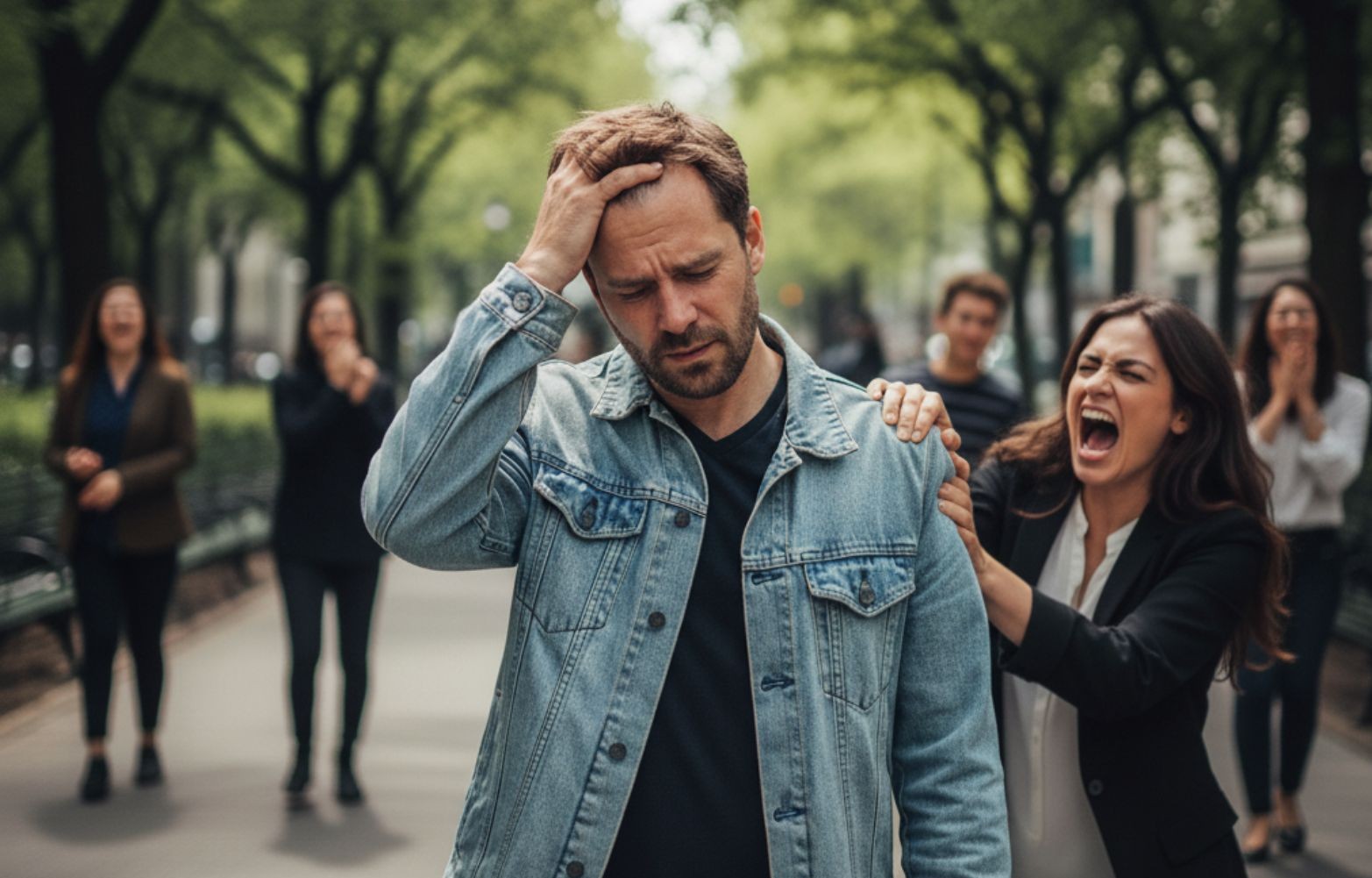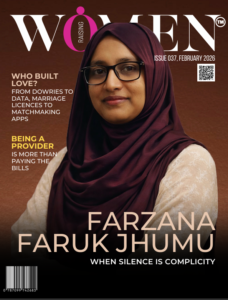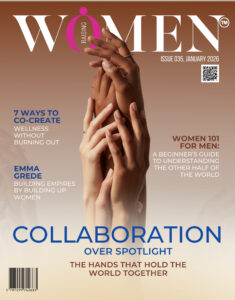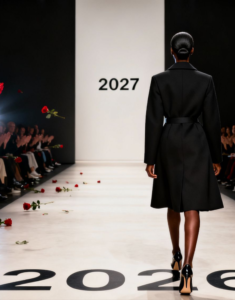By Tom Boyd
I was watching a social‑experiment video the other day, and what I saw stopped me in my tracks. In the first scene, a man was visibly aggressive toward a woman, shouting, pushing, intimidating. Within seconds, people nearby intervened: they pinned him down, helped the woman up, guided her away. You could almost see the moral alarm go off in passers‑by.
Then the second scenario rolled. The roles reversed: the woman became the aggressor; she yelled, she hit the man, she was physically dominant. But now the reaction was startling: the crowd hesitated, some laughed, and worse still, some men joined her, hitting the man too. I sat there thinking: What just happened? Why did so many feel no urgency to step in?
It hit me: while we rightly talk about women suffering violence, we often ignore that men can be victims too. I’m not saying men suffer at the same rate or in exactly the same way as women (the evidence clearly shows that’s not the case). But what I am saying is this: men are humans and they can deserve help when they are on the receiving end of abuse.
The truth behind the numbers
Let’s look at what we do know. According to the Office for National Statistics (ONS) in England and Wales for the year ending March 2024, an estimated 1.6 million women and 712,000 men aged 16 and over experienced domestic abuse in the last year. That works out to about 6.6% of women and 3.0% of men.
Another source, the ManKind Initiative reports that one in five men (21.7%) said they’ve been a victim of domestic abuse in their lifetime.
And yet: of the men suffering abuse, it’s estimated that over 515,000 did not report it in 2024 alone.
These aren’t trivial numbers. They show men aren’t just “occasional” victims, they form a meaningful portion of people suffering abuse. But we still treat them as afterthoughts.
Why do men get overlooked?
Part of the reason is cultural. We socialise boys to be strong, to stand firm, to not show weakness. We tell them to fight back, to defend, to “man up”. If a man is on the receiving end of abuse, society often expects him to either shrug it off or retaliate.
And when he doesn’t retaliate? He’s labelled “weak”, “less of a man”, or even laughed at altogether. Some people say things like “Why are you letting her hit you?” or “Hit her back so she’ll stop.” These responses are not only unhelpful; they reinforce the silence.
Let’s return to that social‑experiment moment: a man was being hit by a woman, but instead of someone stepping in, other men joined the aggression. What does that say? It says men policing men’s reaction. It says men reinforcing the notion that if you don’t hit back you’re worthless. It says men aren’t being taught to protect, but to judge.
The cost of silence
Silence hurts. A man who’s abused but can’t talk about it will carry the weight inside. He may avoid telling friends, family, or health professionals out of fear of being ridiculed. He may believe he should have been able to “handle” it. The result? Anxiety. Depression. Even suicidal thoughts.
When help‑seeking is stigmatized, when support services are fewer for men, the damage goes unchecked. One recent study found male victims across Western English‑speaking regions reported major struggles with accessing services.
Balancing the conversation
Now, to be absolutely clear: Women overwhelmingly are the victims in domestic and sexual abuse statistics, especially when it comes to severe violence and homicide. For example, in the year ending March 2023, 93% of domestic‑abuse‑related sexual offences had female victims.
My point isn’t to minimise women’s suffering. Rather: to widen the lens. Because when we say only women can be victims, we shut out men who are hurting and we miss an opportunity for healing on all sides.
Men helping men, the part I feel strongly about
Here’s my strong view: Men should help men. If you’re a man and you see another man being abused, whether by a woman or by another man, you should step in. Not with aggression, but with support. Ask: “Are you okay? Do you need help?” Don’t mock. Don’t judge.
Because what if that man didn’t respond because he was worried about hitting her, about being arrested, about being seen as a brute? What if he’s tallying his choices in his head “If I fight back, she might fall, or the police might think I’m the aggressor”? That hesitation doesn’t make him weak. It makes him human.
So let’s talk. Let’s listen. If you’re a guy, sit down with your buddy. “Hey man, did that incident the other night worry you?” Encourage honesty. Create a space where admitting “I was hurt” doesn’t mean “I’m lesser than”.
And for men who’ve been hit, manipulated, thrown around: Speak up. Silence isn’t strength. It is the opposite. It lets shame build inside. It dimples your self‐worth. It increases the risk of deeper pain. Speak. Find someone who listens. You’re not less for hurting. You’re human.
What we can do better
- Encourage open conversations in male communities: workplaces, sports clubs, brother circles.
- Expand services to include men, support groups, helplines, safe places.
- Educate society: abuse is abuse, not only male‑perpetrator vs female‑victim.
- Call out the culture that says “men don’t complain” or “men should hit back”. No one wins when violence becomes the only “solution”.
So, the next time you’re in a group of men and one of you says something like “But she hit me… and I froze”, don’t scoff. Ask: “What happened?” Don’t say: “you shouldn’t let her do that”. You can say: “That must’ve been tough. How are you doing now?”
Because yes, men are expected to be protectors, but sometimes men need protecting too. Men are also humans. And humans deserve help. So, if you’re reading this and you’re hurting, reach out. If you’re a man and you see another man hurting, reach out. Don’t let judgement win. Let compassion lead.







